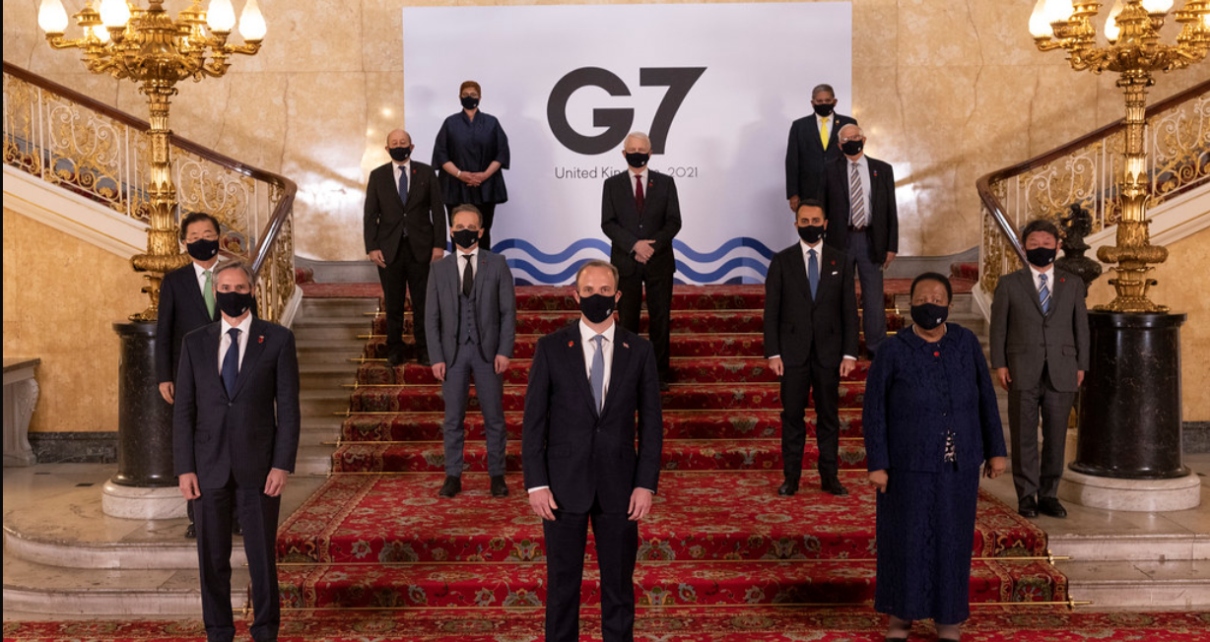During his election campaign, US President Joe Biden pledged that within the first year of his presidency the US would convene what he dubbed a Summit for Democracy. Although a public agenda has yet to be disclosed and the Summit for Democracy has yet to be slated on this year’s calendar, Biden’s foreign policy emissaries, including Secretary of State Anthony Blinken, have already begun shaping a new narrative that indicates how such a summit will likely address key democratic challenges.
One of the Biden administration’s most telling postures was transmitted through the recent G7 foreign ministers meeting in London in early May. A communiqué from that meeting states, “[we] are meeting today at a critical juncture […] democracy is under pressure globally.” Such a statement recognizes that democracy is being tested. Two clearly delimitated systems of governance with competing values are in a duel: the first is the democratic system, which some observers in Western nations consider to be deteriorating, and the second, that of emerging authoritarian regimes, with China at the helm, leveraging its economic means to create a complex web of thriving international relationships. The message in this context is unequivocal: Biden and his administration, along with G7 allies, are leaning into the idea of forming a coalition founded on shared democratic values to counterbalance the growing power and influence of autocratic models.
As the Biden administration moves forward with its vision of competing geopolitical agendas, it has great need for diplomatic adeptness. It is notable that the G7’s communiqué positions itself firmly on the side of open societies, with a reverence for the rules-based international order, because in doing so it draws a line in the sand that positions non-adherents as obstacles who should work to redeem themselves. The communiqué outright scolds the behaviour of Russia; Russia, it alleges, illustrates “irresponsible and destabilising behaviour [and] malign activities,” such as election meddling, the use of chemical weapons, and the politically motivated imprisonment of Alexei Navalny. Alternatively, and with a lighter tone, China is encouraged to participate more constructively in the rules-based international order, despite its human rights violations and abuses in Xianjiang, erosion of democratic governance in Hong Kong, cyber-enabled intellectual property theft, and undermining of free and fair trade practices. Such wording illustrates approaches to those two countries that are commensurate with each nation’s power and influence on the world stage.
Ensuring continued peace and prosperity in an otherwise contentious environment where interests differ so vastly will require clear strategic planning and an alignment of foreign policy objectives among leading democratic nations. The Summit for Democracy will likely follow in the G7’s footsteps by furthering these candid types of geopolitical discussions.
As such, two primary recurring narratives have emerged on what the Summit for Democracy could entail. The first regards the summit as an opportunity to continue to build on hopes to extend the spread of democracy and democratic shared values. The second regards the summit as an occasion to acknowledge the need for a re-framed vision of democracy protection. So far, it seems Biden and his administration are clear-eyed in their belief that the first cannot happen without the second.
A revised account of geopolitical circumstances provides an opportunity for introspection which goes beyond the scope of international relations. A Summit for Democracy is an occasion for participants to discuss ways of strengthening their own domestic democratic institutions. The focus therefore should be not only on geopolitical matters, but also domestic policies and those less evident power dynamics which are formulated and shaped through public narratives within individual countries.
China and Russia, among others like Iran and North Korea, will be watching the Summit for Democracy very closely not just because the summit will provide an indication of future strategic relations, but also because they will want to see if the West can successfully coalesce behind a plan to unite their citizenry and strengthen their democratic institutions. Indeed, they have identified all too well the West’s Achilles’ heel: the public sphere and its discourses, protected by measures of freedom of speech, are openly exposed to vulnerabilities that allow the exploitation and undermining of democratic systems. In this disinformation battlefield, the internet provides a far-reaching weapon the West is struggling to constrain.
A Summit for Democracy must move towards recognizing that democracy cannot thrive if the challenges affecting liberal democratic nations from within are not themselves addressed first. And while the West must strengthen its cyber infrastructures, this alone will not suffice in fixing social fissures. A focus on education, based on strengthening critical thinking skills, an increased emphasis on civics, a responsible fourth estate, and an extended sense of political responsibility through demonstrated moderation remain some of the West’s most promising defences.
A Summit for Democracy must mark the coming of a new strategic era for democracy in which all are united as democracy advocates. Building a public narrative that reflects a united front is the collective responsibility of all who wish for democratic systems to thrive.
Photo: Prime Minister Boris Johnson and G7 Foreign Ministers Summit, 05/05/2021. London, United Kingdom. Picture by Simon Dawson, No 10 Downing Street via flickr.
Licensed under CC BY-NY-ND 2.0
Disclaimer: Any views or opinions expressed in articles are solely those of the authors and do not necessarily represent the views of the NATO Association of Canada.




